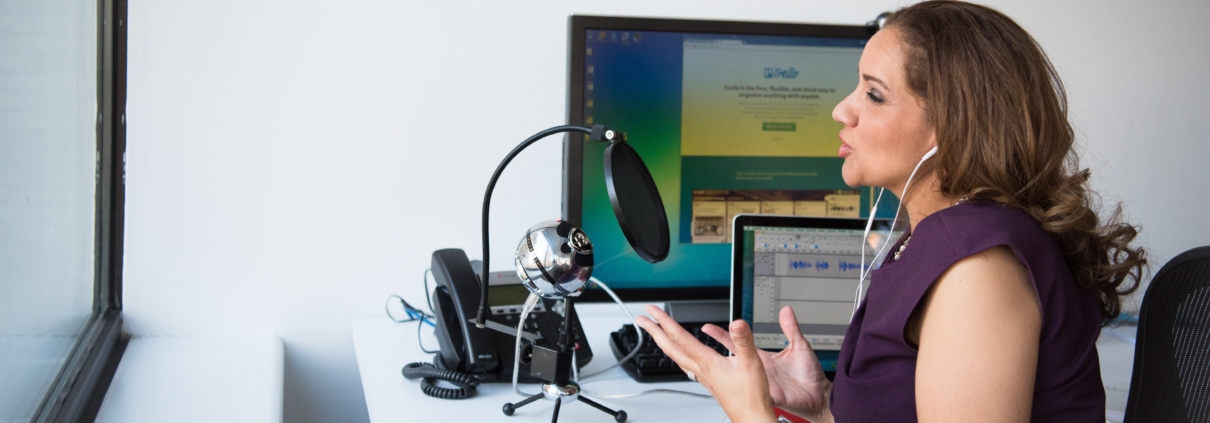There are a lot of reasons to start playing golf — whether you enjoy meeting new people or blowing off some steam, there is definitely something for everyone in this sport. However, there are some important business lessons to learn from the game that are often overlooked, including tenacity, constant learning, honesty, and achievement orientation. All these can be tapped to generate sound business acumen.
Our CEO, Andrew Marr is a PGA professional and a lifelong advocate for the sport of golf. His passion is firmly rooted in a love for the game, but his commitment to playing is fueled by golf’s positive influence on his business and leadership skills.
In business — like in golf — the tools you carry matter a lot, but they are often imperfect. We are often given misinformation or a lack of support and then asked to do things that seem impossible. However, as an entrepreneur, we understand the importance of getting things done, even if that requires some creativity.
To summarize the mental challenges of golf, Arnold Palmer famously said, “Golf is deceptively simple and endlessly complicated; it satisfies the soul and frustrates the intellect. It is at the same time rewarding and maddening – and it is without a doubt the greatest game mankind has ever invented.”
Being mentally strong is equally important in golf and business, as is having a certain level of discipline when practicing and competing. Golf is a unique sport since you are your own umpire and referee. Vaibhav Dayal, Co-founder and Managing Director, V Resorts, says, “In golf, a player keeps his own score, and there is no second eye to monitor moves. It is played with an immense level of integrity and personal honesty.”
Lessons from the first tee-off to the 18th hole
Most golfers’ favorite aspect of the sport is the instant feedback received after each stroke — something successful players use carefully as they progress. The high-level of challenge and opportunity for course correction ensure the constant possibility for improvement. “Golf shows you that there is no perfect strategy, and all you can do is giving it your best shot. Then, you assess the result, figure out what you need to do to improve the execution, and then take another shot at greater success,” says Saurabh Saklani, Co-founder and Director, inme.
By far, the biggest lesson that can be taken out of golf is that of tenacity. “Golf is the closest game to the game we call life. You get bad breaks from good shots; you get good breaks from bad shots, but you have to play where the ball lies,” said Bobby Jones in regards to the determination required to be successful in the sport.
While every sport teaches an important lesson in some way, Golf, by its very nature, provides a sustained learning experience with regular ups and downs. Playing two good holes of golf (read: two good quarters of business performance) is often followed by two terrible holes, where people start questioning their skills and abilities. In other words, someone who excels at golf would probably possess an innate desire to learn and re-learn.
In business, this lesson is taught through repeated failure, which can deter many great minds from entering the world of entrepreneurship. Despite our best efforts, the result of business-related decisions is not dependent on the decisions of one person — a humbling realization for many leaders and an important opportunity to practice open-mindedness and flexibility. Golf teaches one to shed baggage, re-think, re-invigorate, re-strategize, and execute with a hope of success.
Build a network of like-minded individuals.
Every great entrepreneur understands that business cannot solely exist within the confines of a boardroom or office and many opportunities are found in some unexpected places — like the golf course.
The following story is from a man named Stan Hanks who has been helping build the internet since 1981:
(A week after learning to golf) I’m sweating my way through 18 holes on the Pecan course at the Sweetwater Country Club with a VP from a Fortune 50 company, one of his technical leads, and my VP of Sales. It was an interesting experience — a huge learning experience for me. Pat, my VP of Sales, did this all the time. He managed the conversation in many ways, going from what do you think about brand X balls to how ’bout them Astros to why building a SAN in-house was a better solution given the parallel I/O requirements of the supercomputer cluster that the company was using.
It kept things casual but made room for getting in key points. It also gave us all a chance to meet in a no-ties, no-press-of-business environment. We literally got nearly four hours, un-interrupted, together. And then on to happy hour afterward for another couple of hours.
Nothing “happened” that day. No contracts were signed, no deals were made. But it was significant in a very large number of ways. The VP got to see me in action, got to hear me think on my feet (which frankly is my strongest suit), got to see me deal with frustration and things not exactly going my way. I got to spend time with him and see what he valued and prioritized, whether he was a “go for it” guy, or a “let’s keep this in the fairway” guy — which is really important to know, when you’re pitching a deal.
As you can see, the golf course can be an essential part of your business, especially when landing new clients or acquiring funding for a new project.
Beyond landing new clients, the golf course can be an essential part of your hiring process. If you want to be successful in today’s competitive market, you have to make investments in people. If it fits your company’s culture, try using the game of golf to demonstrate your skill and competency that will ultimately lead to associations. Finding the balance between treating golf as business and leisure is where one can find success.
Turn your passion into profit.
No matter their skill level, playing golf with clients and colleagues gives you additional insights into their personalities. Similarly, playing the game will give you insights into your psyche, too. To become good at it requires time and patience. Golf can also become that common interest that creates the bonds that last a lifetime. If you haven’t already, pick up the sticks. It just may improve your business and your life.





